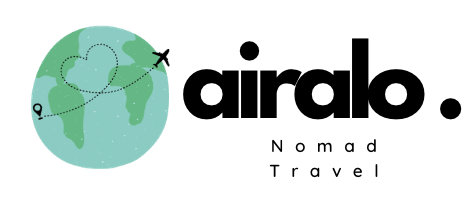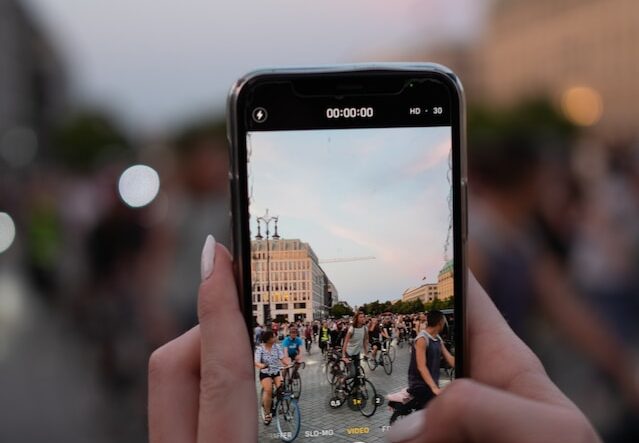Are you a digital nomad considering a move to Colombia but unsure about the best visa type for your stay? Look no further. In this article, we will explore the various visa options available for digital nomads in Colombia and help you make an informed decision. Colombia, with its vibrant culture, warm climate, and affordable cost of living, has become a popular destination for remote workers and digital nomads. However, navigating the visa requirements can be daunting.
We will discuss the Migrant (M) visa, which offers long-term residency; the Temporary (TP) visa for temporary stays; and the Visitor (V) visa for shorter visits. We will delve into the specific requirements, advantages, and limitations of each visa type to help you determine which one is best suited for your needs as a digital nomad. Whether you plan to stay in Colombia for a few months or make it your long-term base, understanding the visa options available will ensure a smooth and legal transition. So, let’s dive in and find the best visa type for you as a digital nomad in Colombia.
Benefits of Being a Digital Nomad in Colombia
Colombia offers numerous advantages for digital nomads. First and foremost, the country’s low cost of living allows digital nomads to stretch their budgets while enjoying a comfortable lifestyle. Accommodation, food, transportation, and entertainment are all relatively affordable compared to many other countries.
Additionally, Colombia boasts a diverse and welcoming culture, making it an exciting place to live and work. The country is known for its warm and friendly locals who are ready to lend a helping hand. The vibrant cities, stunning beaches, and lush countryside provide endless opportunities for exploration and adventure during your time as a digital nomad in Colombia.
Understanding the Visa Requirements for Digital Nomads in Colombia
To legally work and stay in Colombia as a digital nomad, it is crucial to understand the visa requirements. Colombia offers several visa options for individuals who wish to work remotely while residing in the country. These visa types vary in terms of requirements, duration, and the ability to engage in certain activities.
The most common visa types for digital nomads in Colombia include the Migrant (M) Visa, the TP-4 Visa, and the TP-10 Visa. Each visa type has its own set of requirements and limitations, and it is important to choose the one that best suits your needs and circumstances.
Types of Visas Available for Digital Nomads in Colombia
Colombia offers several visa options for digital nomads, depending on the length of stay and purpose of your visit. The three main types of visas are the Migrant (M) visa, the Temporary (TP) visa, and the Visitor (V) visa.
Migrant (M) Visa
The Migrant (M) visa is a long-term residency visa suitable for digital nomads looking to make Colombia their permanent or semi-permanent base. This visa allows you to live and work in Colombia for an extended period and offers more flexibility compared to other visa types.
To qualify for the Migrant visa, you need to meet specific requirements, including having a Colombian bank account, providing a steady source of income, and demonstrating your intention to stay in Colombia for an extended period. You may also be required to provide additional documents, like a criminal record check and proof of health insurance.
One of the advantages of the Migrant visa is that it allows you to work legally in Colombia without the need for a work permit. This means you can freely pursue your remote work while enjoying the benefits of living in Colombia. However, keep in mind that the Migrant visa comes with the responsibility of paying taxes in Colombia.
Pros
- Allows permanent residence in Colombia
- Freedom to engage in any legal activity
- Eligible for Colombian social benefits
Cons
- Complex application process
- Requires meeting specific criteria
- Limited opportunities for remote work
TP-4 Visa
The TP-4 visa, also known as the Temporary visa for independent contractors, is suitable for digital nomads who plan to stay in Colombia for a shorter period, typically up to one year. This visa is ideal for freelancers or self-employed individuals who work with Colombian clients or companies.
To be eligible for the TP-4 visa, you need to provide evidence of your work as an independent contractor, such as contracts or invoices from Colombian clients. Additionally, you must demonstrate that you have enough financial resources to sustain yourself throughout your stay in Colombia and furnish a comprehensive schedule of your planned activities.
The TP-4 visa allows you to legally work as an independent contractor in Colombia and receive payments from local clients. However, it is important to note that this visa does not grant you the right to seek employment with Colombian companies.
Pros
- Valid for up to three years
- Allows remote work for foreign companies
- Relatively straightforward application process
Cons
- Does not grant the right to work for a Colombian company
- No access to Colombian social benefits
- Limited work opportunities within Colombia
TP-10 Visa
The TP-10 visa, also known as the Temporary visa for remote work, is designed specifically for digital nomads who work remotely for foreign clients or employers. This visa allows you to legally reside and work in Colombia while maintaining your employment relationship with entities outside the country.
To qualify for the TP-10 visa, you need to demonstrate that you have a remote work contract or employment agreement with a foreign entity. You’ll also be required to present evidence of ample funds to cover your expenses during your stay in Colombia and submit a detailed itinerary of your planned activities.
The TP-10 visa offers flexibility and allows you to work for foreign clients or employers while enjoying the benefits of living in Colombia. However, it is important to note that this visa does not permit you to seek employment or work for Colombian companies.
Pros
- Allows work for Colombian companies
- Opportunity to engage in local employment
- It can be extended up to one year
Cons
- Requires a job offer from a Colombian company
- Limited flexibility for remote work
- No access to Colombian social benefits
Requirements and application process for each visa type
Now that we have explored the different visa types available for digital nomads in Colombia let’s take a closer look at the specific requirements and the application process for each visa:
Migrant (M) Visa
To apply for the Migrant visa, you will need to fulfill the following requirements:
- Have a Colombian bank account with a minimum balance of $5,000 USD.
- You need to show evidence of a reliable income source, such as bank statements or tax returns.
- Submit a criminal record check from your home country.
- Show proof of health insurance coverage in Colombia.
- Provide a detailed statement explaining your intention to stay in Colombia for an extended period.
- Pay the visa application fee, which depends on your country of origin.
Once you’ve gathered all the necessary documents, you can proceed to apply for your visa at either the closest Colombian consulate or through an officially authorized visa agency. The time it takes to process your application can vary, but generally, it will take about four to eight weeks to get a response to your visa request.
TP-4 Visa
To apply for the TP-4 visa, you will need to fulfill the following requirements:
- Provide evidence of being a registered independent contractor or freelancer.
- Submit contracts or invoices from Colombian clients.
- Show proof of sufficient funds to support yourself during your stay in Colombia.
- Provide a detailed itinerary of your intended activities in Colombia.
- Pay the visa application fee, which depends on your country of origin.
You can submit your TP-4 visa application at the nearest Colombian consulate or through an authorized visa agency. The processing time for this visa type is usually around four to eight weeks.
TP-10 Visa
To apply for the TP-10 visa, you will need to fulfill the following requirements:
- Provide a remote work contract or employment agreement with a foreign entity.
- Show proof of sufficient funds to support yourself during your stay in Colombia.
- Provide a detailed itinerary of your intended activities in Colombia.
- Pay the visa application fee, which depends on your country of origin.
Like the other visa types, you can submit your TP-10 visa application at the nearest Colombian consulate or through an authorized visa agency. The processing time for this visa type is typically around four to eight weeks.
Cost and duration of each visa type
When considering the best visa type for your digital nomad journey in Colombia, it is essential to take into account the cost and duration of each visa. Here is a breakdown of the cost and duration for each visa type:
Migrant (M) Visa
The Migrant visa has a processing fee of approximately $300 USD, excluding any additional fees charged by visa agencies. This visa enables you to stay in Colombia for up to three years, with the possibility of renewal.
TP-4 Visa
The TP-4 visa has a processing fee of around $200 USD, excluding any additional fees charged by visa agencies. This visa enables you to stay in Colombia for up to one year, with the possibility of an extension.
TP-10 Visa
The TP-10 visa also has a processing fee of approximately $200 USD, excluding any additional fees charged by visa agencies. This visa enables you to stay in Colombia for up to one year, with the possibility of an extension.
Tips for a Successful Visa Application Process
Preparing and submitting a visa application can be a complex process, but with the best approach, you can increase your chances of a successful outcome. Here are some tips to help you navigate the visa application process for digital nomads in Colombia:
- Begin the application process with ample time to account for any unforeseen delays or potential extra document needs.
- Thoroughly research the specific prerequisites for your desired visa category and make certain that you fulfill all the eligibility criteria.
- Gather all the important supporting documents, such as bank statements, contracts, or invoices, and ensure they are up-to-date and accurate.
- Consult with a visa agency or immigration lawyer if you need assistance with the application process.
- Double-check your application form and supporting documents for any errors or omissions before submitting them.
- Stay informed about any updates to the visa requirements by regularly checking the official Colombian immigration website or consulting with a trusted source.
Extending Your Visa as a Digital Nomad in Colombia
If you wish to extend your stay as a digital nomad in Colombia beyond the initial visa validity period, it is possible to apply for an extension. The extension process typically requires submitting an application, paying the applicable fees, and providing any supporting documents requested.
It is important to note that visa extensions may have limitations, and it is advisable to consult with the Colombian authorities or an immigration lawyer to understand the particular requirements and options available for extending your visa as a digital nomad.
Conclusion
In conclusion, choosing the best visa type for a digital nomad in Colombia depends on your specific circumstances and preferences. The Migrant visa offers long-term residency and flexibility, but it comes with the responsibility of paying taxes in Colombia. The TP-4 and TP-10 visas are suitable for shorter stays and provide the freedom to work as an independent contractor or remote worker. When getting ready to submit your visa application, it’s crucial to thoroughly examine the requirements, collect all the essential paperwork, and seek help when necessary.
Stay updated on any alterations or updates to the visa criteria to guarantee a seamless and successful application process. Ultimately, Colombia offers several visa options that cater to the needs of digital nomads. Whether you choose the Migrant visa, TP-4 visa, or TP-10 visa, you can look forward to experiencing the vibrant culture, warm climate, and affordable cost of living that Colombia has to offer as a digital nomad.





